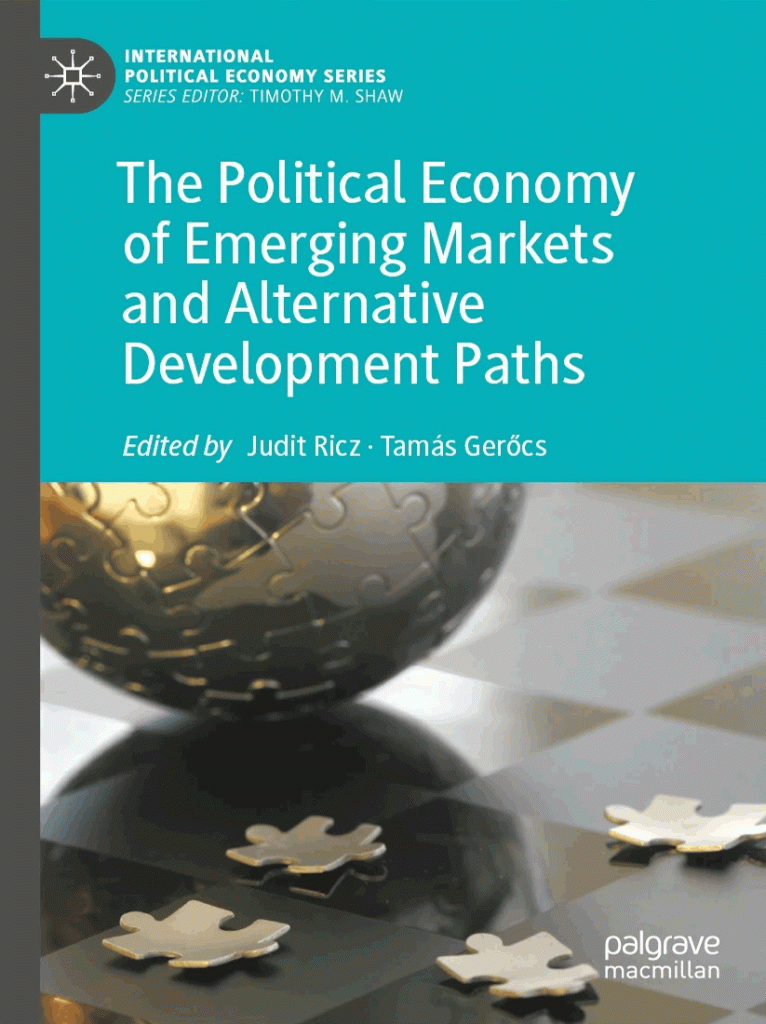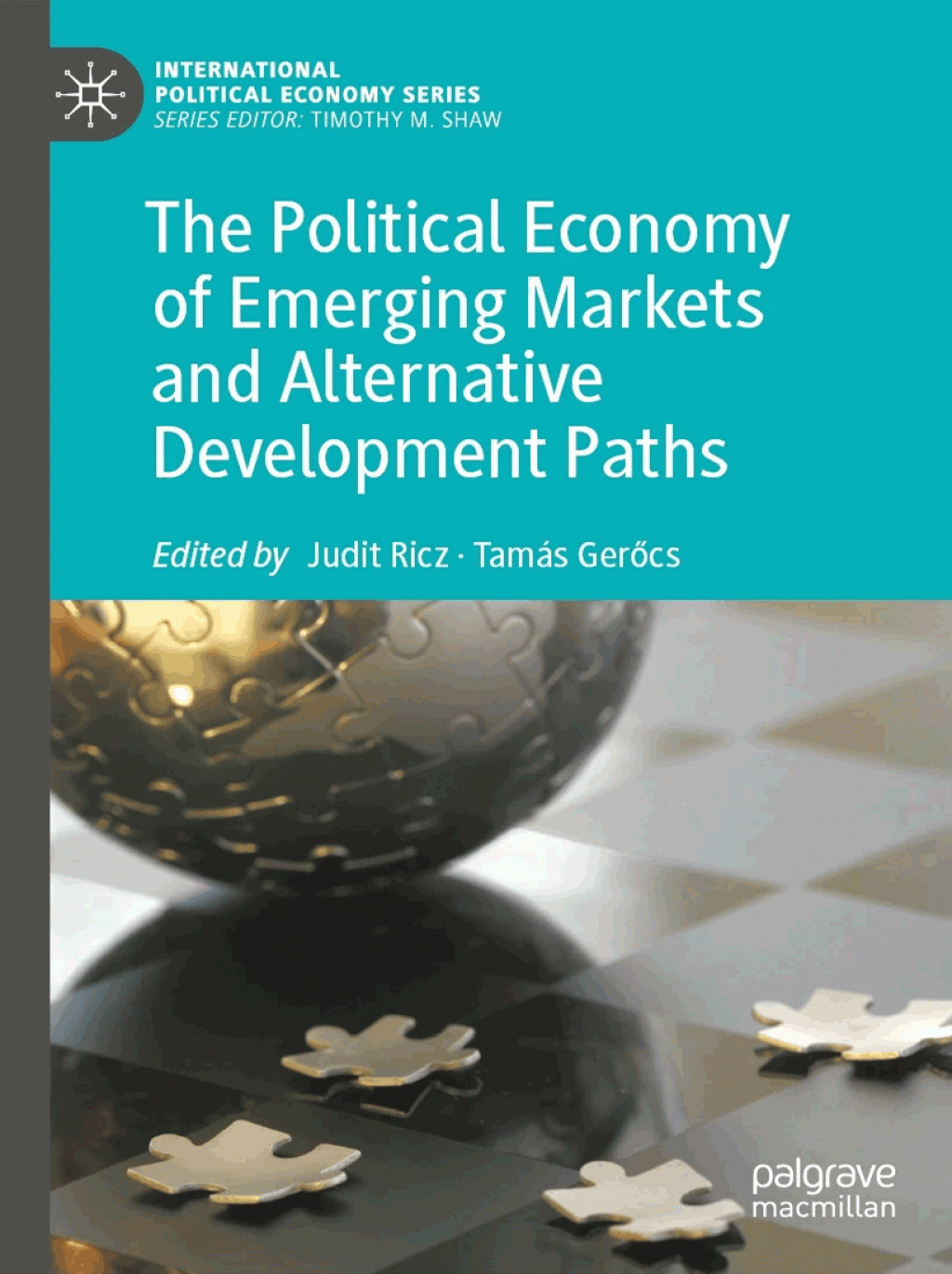The Political Economy of Emerging Markets and Alternative Development Paths
Editors: Judit Ricz, Tamás Gerőcs
Authors & Chapters:
Judit Ricz: Introduction: Emerging Market Economies and Alternative Development Paths, Pages 1-12.
István Benczes: Populism and/or Developmentalism: Past and Present Experiences, Pages 61-86.
Magdolna Sass: Surviving and Competing Successfully? Internationalisation of State-Owned Companies in Central and Eastern Europe, Pages 87-117.
Miklós Szanyi, Somayeh Sedighi: Rent Streams and Institutional Development in the (Semi-)periphery: Iran and Hungary, Pages 171-201.
Tamás Gerőcs: Conclusion: The Contradictions of Dependent Development in Hegemonic Transition, Pages 323-334.
In: The Political Economy of Emerging Markets and Alternative Development Paths, Ricz, J., Gerőcs, T. (eds.), Cham: Palgrave Macmillan
DOI: https://doi.org/10.1007/978-3-031-20702-0
About this book
This volume is the continuation of our research on economic and developmental policy-making in the global semi-periphery in the post-crisis cycle (see our two recently published volumes titled ‘Market-Liberalism and Economic Patriotism in Capitalist Systems’ edited by Gerőcs and Szanyi, 2019, Palgrave Macmillan and ‘The Post-Crisis Developmental State – Perspectives from the Global Periphery’ edited by Gerőcs and Ricz, 2021). Our new volume aims to be a contribution to the analysis of emerging market economies’ alternative development trajectories, as we explore the new perspectives on semi-peripheral dependent development since the Global Financial Crisis and especially amidst the new global pandemic, the COVID-19.
The scope of comparative capitalism research has also been altered accordingly to include the analysis of emerging economies outside the core of the world system, and to make intertemporal comparisons possible (such as to define and characterise historical waves of state capitalism). Still, we are convinced that to better understand the current wave of state capitalism and to explore its national varieties there is a need to critically reconsider existing theoretical approaches and methodologies, and to search for new ones, if necessary.
This book aims to be a contribution to the analysis of emerging market economies’ alternative development trajectories and explores new perspectives on semi-peripheral dependent development, especially amidst COVID-19.




